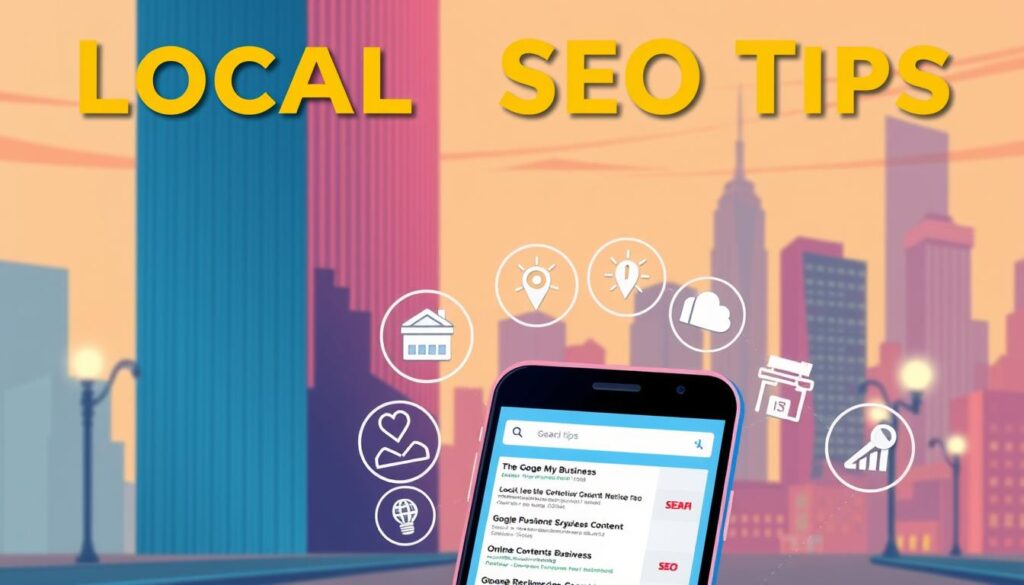In today’s competitive digital landscape, understanding the costs associated with Google Ads is crucial for UK business owners aiming to maximise their online presence. With so many agencies offering varying fee structures, it’s essential to grasp how these charges can affect your marketing budget and overall ROI.
Agencies typically charge using one of two models: a flat monthly fee or a percentage of your ad spend. For instance, a 15% management fee on a £10,000 monthly budget could amount to £1,500. Flat fees, on the other hand, range from £500 to £5,000 per month, depending on the scope and complexity of your campaigns.
Poorly managed campaigns can lead to significant overspending, often resulting in a lower return on investment. However, with optimised campaigns, you can achieve real ROI by reducing your cost per click (CPC) and increasing conversions. Factors such as your budget size, campaign complexity, and the agency’s expertise play a substantial role in determining costs.
For example, industries like legal and finance often see higher CPCs, averaging around £7.27 and £5.28 respectively. In contrast, sectors like arts and entertainment may see lower costs, with CPCs as low as £1.22. Proper management can significantly lower your CPC and improve ad positioning by enhancing your Quality Score and utilising strategies like negative keywords.
Key Takeaways
- Understanding Google Ads costs is vital for effective budget management and maximising ROI.
- Agencies use varying fee structures, including flat fees and percentages of ad spend.
- Poor campaign management can lead to overspending and reduced ROI.
- Industry-specific competition significantly influences CPC, with sectors like legal and finance seeing higher costs.
- Optimising campaigns through Quality Score improvement and negative keywords can lower CPC and enhance ad performance.
Understanding Google Ads Agency Pricing Models
When it comes to managing your Google Ads campaigns, understanding the pricing models used by agencies is essential. This helps you choose the right fit for your business needs and budget.
Flat Fee Plus Percentage of Spend
This is a common pricing model where agencies charge a fixed monthly fee plus a percentage of your ad spend. For example, you might pay a £500 monthly fee plus 10% of your total ad spend. This model is popular because it balances predictability with scalability. The fixed fee covers essential services like campaign setup and ongoing management, while the percentage ensures the agency is incentivised to optimise your spend for better results.
Hourly Rate and Alternative Options
Some agencies offer hourly rates, typically ranging from £30 to over £150 per hour, depending on expertise. This model is ideal for specific, short-term tasks. However, for ongoing campaigns, a monthly retainer is often more cost-effective and predictable. Transparency is key in any pricing model. Look for agencies that provide clear breakdowns of their fees and regular performance reports.
Choosing the right pricing model depends on your campaign’s complexity and your business goals. For instance, if you’re running multiple campaigns with varying targets, a flat fee plus percentage model might offer better value. On the other hand, if you need help with a one-time setup or a small-scale campaign, an hourly rate could be more economical.
Ultimately, the pricing model should align with the scope and complexity of your campaigns. Whether you opt for a flat fee, percentage-based, or hourly model, ensure it offers the flexibility and transparency you need to achieve your advertising goals. For more insights, you can explore our guide on understanding Google Ads agency pricing.
How much do agencies charge for google ads
Understanding the costs associated with hiring an agency to manage your Google Ads campaigns is crucial for any business looking to optimise its digital marketing budget. Agencies typically use various pricing models, which can vary based on factors such as ad spend, account complexity, and campaign goals.
The Standard Industry Framework
Agencies often use a combination of flat fees and percentage-based models. For example, a flat fee might range from £500 to £4,000 per month, while percentage fees can range from 15% to 30% of your total ad spend. This hybrid approach provides predictability while incentivising the agency to optimise your campaigns effectively.
Some agencies also offer performance-based models, where fees are tied to conversions or leads. However, this model is less common due to the complexity of tracking and attributing results.
Comparing Domestic and Overseas Rates
Domestic agencies in the UK often charge higher rates due to local market expertise and higher operational costs. Overseas agencies, particularly in regions with lower labour costs, may offer significantly lower fees. However, language barriers and a lack of local market understanding can sometimes offset the cost savings.
| Aspect | Domestic Agencies (UK) | Overseas Agencies |
|---|---|---|
| Average Monthly Costs | £500 – £4,000 | £300 – £2,000 |
| Pricing Structure | Flat fee or percentage of ad spend (15%-30%) | Often lower flat fees or percentage rates (10%-25%) |
| Considerations | Local market expertise, higher transparency, and regulatory compliance | Cost savings, but potential language and cultural barriers |
For businesses considering their options, it’s essential to weigh these factors carefully. For more insights on choosing the right agency, you can explore our guide on selecting a UK-based SEO agency.
Evaluating Service Levels and Expertise
When selecting a partner to manage your Google Ads campaigns, it’s crucial to assess both service levels and expertise. This evaluation ensures you receive the support needed to meet your advertising goals effectively.
Accredited Agencies vs. Freelancers
Accredited agencies offer a structured approach with dedicated teams and proven methodologies, ensuring consistent delivery and accountability. They often hold certifications like Google Partner, indicating their expertise. Freelancers, while cost-effective, may lack the infrastructure and comprehensive service range of agencies.
Specialised Service Offerings
Top agencies provide advanced services such as multi-channel advertising and data-driven campaign optimisation. They utilise proprietary tools for superior campaign management, enhancing your ad performance and ROI.
Expertise is key to successful campaigns. Agencies with deep knowledge in Google Analytics and PPC strategies can significantly improve your ad effectiveness. Their credentials ensure high-quality service, crucial for achieving your marketing objectives.
Service levels vary between providers, impacting campaign outcomes. Accredited agencies often deliver higher service levels, benefiting your overall performance. For more insights on choosing the right partner, visit our guide on understanding Google Ads management costs.
Factors Influencing Your Google Ads Management Costs
Your Google Ads management costs can vary based on several key factors. Understanding these elements helps you better plan your budget and expectations.
Campaign Size, Budget and Ad Spend
The size of your campaign and your budget significantly impact management costs. Larger campaigns with bigger budgets typically require more work to manage effectively, leading to higher fees. For example, a campaign with a £10,000 monthly budget might incur a 15% management fee, amounting to £1,500. Smaller budgets, while costing less in absolute terms, may have a higher percentage fee due to the fixed costs of campaign setup and maintenance.
Industry Complexity and Customisation Needs
Industry-specific demands also play a crucial role. Certain industries, like finance or retail, often require more customised approaches due to higher competition and complex targeting needs. This can increase management costs. For instance, finance campaigns might see higher cost-per-click (CPC) rates, averaging around £7.27, compared to arts and entertainment, where CPCs can be as low as £1.22.
Experience and time are essential for optimising campaigns. Agencies with more expertise can achieve better results, often justifying higher fees. To determine the right level of service for your business, consider your campaign’s complexity, budget, and industry. For more insights on selecting the right management approach, visit our guide on Google Ads management pricing.
How to Choose the Right Agency for Your Business
Selecting the right PPC management partner is a critical decision for your business. With numerous agencies offering PPC services, it’s essential to evaluate their expertise, communication style, and alignment with your goals. This section provides a checklist to help you make an informed choice.
Questions to Ask Prospective PPC Experts
Before committing to a PPC agency, ask these key questions:
- What experience do they have in your industry?
- How will they align their strategies with your specific business goals?
- What reporting and communication processes do they use?
- Can they provide case studies or testimonials from similar clients?
Ensuring Transparent Reporting and Communication
Transparency is vital for a successful partnership. Ensure the agency offers:
- Regular, detailed performance reports.
- Direct access to campaign data for full visibility.
- Clear communication channels to address your concerns promptly.
A strong PPC management partner will have proven expertise, a track record of success, and a communication style that aligns with your needs. For more guidance on selecting the right agency, visit our guide on choosing a digital marketing agency.
| Aspect | PPC Experts | Agencies | Freelancers |
|---|---|---|---|
| Experience | Proven track record | Structured teams | Varied expertise |
| Cost | Competitive pricing | Scalable models | Flexible rates |
| Support | Comprehensive | 24/7 availability | Limited |
Maximising ROI with Effective PPC Management
When it comes to achieving the best possible return on investment (ROI) from your PPC campaigns, effective management is key. By focusing on optimisation strategies that deliver measurable results, you can significantly enhance your campaign’s performance and achieve your business goals.
Optimisation Strategies that Deliver Results
To maximise ROI, it’s essential to implement strategies that reduce your cost per click (CPC) while increasing your conversion rates. One effective method is click-through optimisation, which focuses on improving the relevance and appeal of your ads to encourage more clicks. Additionally, conversion tracking allows you to monitor and measure the effectiveness of your campaigns, ensuring that your budget is being used efficiently.
Leading agencies employ advanced techniques such as A/B testing to compare different ad variations and identify the most effective elements. This approach helps in refining your campaign strategy and improving overall performance. Moreover, proactive management services can enhance your campaign’s effectiveness by continuously monitoring and adjusting your bids, ad copy, and targeting to align with your business objectives.
Industry data highlights the potential ROI improvements from optimised campaigns. For instance, businesses that focus on high-intent keywords and organise their campaigns into tightly themed ad groups often see a significant increase in conversions. By prioritising keywords based on search volume, competition level, and CPC, you can achieve a better return on your ad spend.
| Strategy | Benefits | Implementation |
|---|---|---|
| Click-Through Optimisation | Increased CTR, Improved Ad Relevance | Refining Ad Copy and Landing Pages |
| Conversion Tracking | Measurable Campaign Effectiveness | Monitoring Key Metrics like CTR and CPA |
| A/B Testing | Identifying Top-Performing Ads | Comparing Ad Variations |
| Proactive Management | Enhanced Campaign Performance | Continuous Bid and Ad Adjustments |
By adopting a results-driven approach, you can ensure that your PPC campaigns deliver measurable outcomes and maximise your ROI. Regular analysis of vital metrics like CTRs, conversion rates, and cost per acquisition (CPA) is crucial for ongoing campaign optimisation. This proactive strategy not only enhances your ad performance but also ensures that your budget is utilised efficiently, driving more sales and conversions for your business.
Local vs National Google Ads Campaign Cost Considerations
When planning your Google Ads strategy, deciding between local and national campaigns can significantly impact your budget and results. Local campaigns often offer cost benefits, while national exposure might be necessary for broader reach.
Cost Benefits of Localised Campaigns
Localised campaigns typically have lower costs. For instance, a local business might see a cost-per-click (CPC) of £1.22, compared to a national campaign averaging £5.28. This is because local ads are highly targeted, leading to better engagement and ROI. A well-targeted local campaign can make your monthly budget go further by focusing on a specific geographic area, ensuring your ads are seen by people more likely to convert.
When to Invest in National Exposure
National campaigns are beneficial for businesses with a broad audience or multiple locations. While costs are higher, the reach is vast, enhancing brand awareness. For example, a company operating across the UK might invest in national ads to maintain consistent messaging and reach a larger market, despite higher CPCs.
Role of Local Customisation and Regional Factors
Customising ads for local preferences can boost performance. Regional factors like competition and population density also affect costs. In densely populated areas, CPCs may be higher due to more competitors bidding on similar keywords.
Interplay with Other Platforms
Combining Google Ads with platforms like Facebook can enhance reach. Facebook’s targeting capabilities complement Google Ads, allowing a multi-channel approach that maximizes your campaign’s effectiveness.
| Aspect | Local Campaigns | National Campaigns |
|---|---|---|
| Average CPC | £1.22 – £3.50 | £5.28 – £12.00 |
| Budget Allocation | Targeted, local audience | Broad, national audience |
| Effectiveness | Higher conversion rates due to relevance | Broader reach for brand awareness |
In summary, local campaigns offer cost efficiency and targeted reach, while national campaigns provide broader exposure. Choose based on your business needs and budget to maximize ROI.
Conclusion
In conclusion, understanding the costs associated with Google Ads management is crucial for any UK business aiming to maximise their digital marketing efforts. The pricing models vary, with flat fees, percentage-based rates, and hybrid approaches being common. Your choice of agency should align with your campaign’s complexity, budget, and goals.
Transparency in pricing and clear communication are essential for a successful partnership. Look for agencies that provide detailed reports and regular updates. To maximise your ROI, focus on optimising your campaigns through strategies like improving your Quality Score and leveraging negative keywords.
For more insights on finding the right balance between cost and performance, visit our guide on understanding Google Ads agency costs. By making informed decisions, you can achieve better results and drive growth for your business.
FAQ
What is the average monthly cost for Google Ads management services?
The average monthly cost for Google Ads management can range from £500 to £5,000+, depending on your ad spend, campaign complexity, and the agency’s expertise. Agencies often charge a percentage of spend or a flat monthly fee.
How does ad spend impact the overall ROI of my Google Ads campaign?
Your ad spend directly influences your ROI. Higher budgets can lead to more clicks and conversions, but it’s crucial to ensure your cost per conversion remains profitable. Agencies will work with you to set a budget that aligns with your business goals.
What’s the difference between managing a local and a national Google Ads campaign?
Local campaigns typically target a specific geographic area, making them more cost-effective for small businesses. National campaigns require a broader reach and often involve higher ad spend and management fees. Your choice depends on your target audience and business objectives.
How do campaign goals affect the cost of Google Ads management?
If your goal is to drive sales, your agency might focus on high-converting keywords, which can be more expensive. For brand awareness, the strategy shifts to impressions and clicks, potentially lowering costs. Your goals shape the pricing model and overall approach.
Can I negotiate the management fee with a Google Ads agency?
Yes, many agencies are open to discussing pricing models based on your budget and needs. Be clear about your ROI expectations and ask how they can tailor their services to deliver the best value for your investment.
How often should I expect performance reports from my Google Ads agency?
Reputable agencies provide regular reports, often monthly, detailing your campaign performance, click-through rates, and conversion rates. Ensure you discuss your reporting preferences during the onboarding process.
What are the key factors that determine the success of my Google Ads campaign?
Success hinges on keyword selection, ad copy quality, landing page optimisation, and bid management. A skilled agency will focus on these areas to maximise your ROI and achieve your business goals.
How long does it take to see results from a Google Ads campaign?
You can start seeing results within a few weeks, but optimal performance often takes 2-3 months. Agencies continuously optimise campaigns to improve your conversion rate and ensure you’re getting the best return on your ad spend.
Can I manage Google Ads myself instead of hiring an agency?
While it’s possible to manage Google Ads yourself, an experienced agency brings expertise and time-saving strategies to the table. They can help you avoid common pitfalls and ensure your budget is used effectively.
How do I know if I’m paying too much for Google Ads management?
Review your ROI and compare it to your management fees. If your profits outweigh the costs, it’s likely worth the investment. Regularly assess your campaign performance to ensure you’re getting value.










